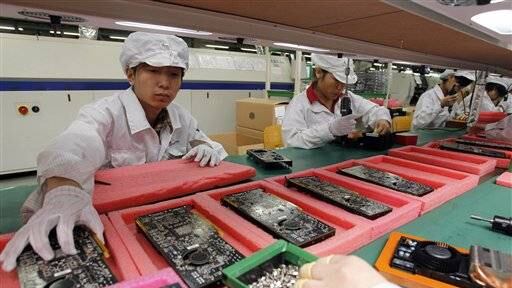iPhone is the product that feeds Apple. Although the giant from Cupertino develops other interesting devices, none can match its family of smartphones. That’s why the recent trade war between China and the United States has Apple, the bitten apple company, on edge.
PUBLICIDAD
CEO Tim Cook is not doing well at the moment.
PUBLICIDAD
The tariffs that the US government imposed on products from China (currently 145%) deeply affect the profits that Apple obtains from the sale of the iPhone.
They lose on all fronts: if they assume the cost of tariffs, their income will decrease, and if they raise the price of cell phones, sales will decrease. That is why Apple’s financial teams have designed a strategic plan to at least survive until 2025, as reported by several specialized media outlets.
India gets “down to work”
Apple has its most important factories in China, such as the case of Foxconn. But it also has production warehouses in India, Vietnam, and Thailand. The downside is that these three countries, not even together, are able to match the production of the Asian giant.
According to a report from Applesfera, Tim Cook would have helped Indian factories and their suppliers to purchase machinery to increase production, aiming to reach 50 million iPhones by the end of 2025.
This means that India would increase production by 40%. On the side of Vietnam and Thailand, similar movements would also have been made, but the sources cited by the aforementioned media do not provide information on quantities, as they did with India.
The reports indicate that they will not only manufacture iPhones, but also produce Macs, iPads, and AirPods.
Why doesn’t Apple manufacture its iPhones in the United States?
Despite all these problems, Apple could invest in a factory in the United States, despite the labor conditions this represents. They could also improve the structures in India, Vietnam, or any other country where they are operating, but the reality is that they have a bigger underlying problem: quality.
The United States lacks qualified personnel for the jobs carried out in the factories in China, and furthermore, labor is much more expensive. Regaining quality and process optimization is what makes Apple want to cling to the Asian giant.
Tim Cook, as a result, is seeking to reach some sort of exception agreement with Donald Trump. Something that would allow them to be exempt from tariffs, in order to maintain the stability of the company and the price of their devices.
A few days ago, the Customs and Border Protection Office indicated that items such as phones, laptops, hard drives, flat-screen monitors, and some chips would be exempt from Trump’s reciprocal tariffs. However, days later, the government and the President of the United States stated that it was a “temporary” measure.
